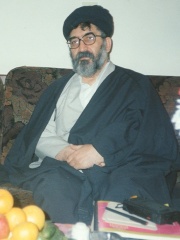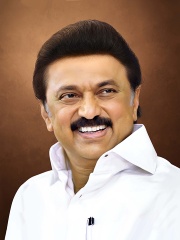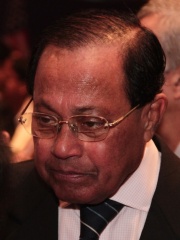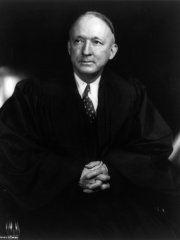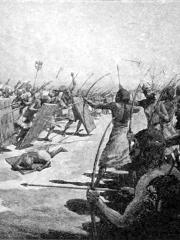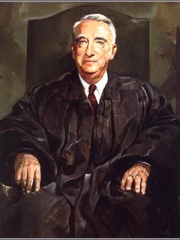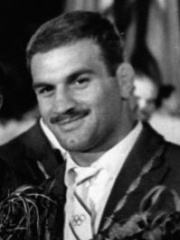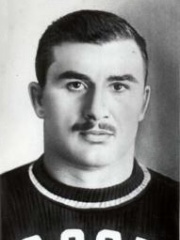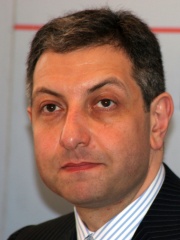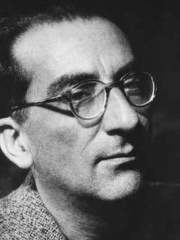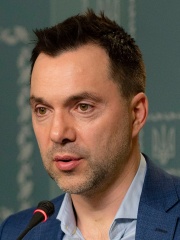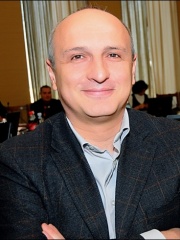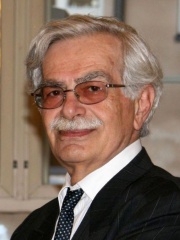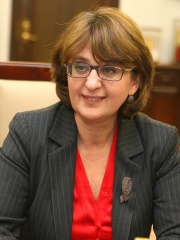POLITICIAN
Mirian I of Iberia

 Mirian I of Iberia
Mirian I of Iberia
Mirian I (Georgian: მირიან I) was a king (mepe) of Iberia who reigned in the 2nd century BC. An adopted son of his father-in-law King Sauromaces I, he was a Persian-born prince but governed over Iberia as a member of the Pharnavazid dynasty. His reign coincided with the emergence of large geopolitical changes associated with the slow collapse of the Seleucid Empire and the rise of Parthia, as well as the increasing power of the neighboring Kingdom of Armenia. While he faced a violent North Caucasian invasion, he repelled it successfully and fortified the Dariali Pass, which would remain Georgia's first line of northern defense until the 19th century. Read more on Wikipedia
His biography is available in 17 different languages on Wikipedia. Mirian I of Iberia is the 16,501st most popular politician (down from 14,699th in 2024), the 240th most popular biography from Georgia (down from 211th in 2019) and the 88th most popular Georgian Politician.
Memorability Metrics
Page views of Mirian I of Iberia by language
Among POLITICIANS
Among politicians, Mirian I of Iberia ranks 16,501 out of 19,576. Before him are Andriy Parubiy, Hadi Khosroshahi, Gennady Novitsky, Ole von Beust, M. K. Stalin, and Moudud Ahmed. After him are Hugo Black, Lugal-Anne-Mundu, Sigurður Ingi Jóhannsson, Gregory Mathews, Silli-Adad, and Fred M. Vinson.
Most Popular Politicians in Wikipedia
Go to all RankingsAndriy Parubiy
1971 - 2025
HPI: 53.08
Rank: 16,502
Hadi Khosroshahi
1939 - 2020
HPI: 53.07
Rank: 16,503
Gennady Novitsky
1949 - Present
HPI: 53.07
Rank: 16,504
Ole von Beust
1955 - Present
HPI: 53.07
Rank: 16,505
M. K. Stalin
1953 - Present
HPI: 53.07
Rank: 16,506
Moudud Ahmed
1940 - 2021
HPI: 53.07
Rank: 16,507
Mirian I of Iberia
HPI: 53.07
Rank: 16,508
Hugo Black
1886 - 1971
HPI: 53.06
Rank: 16,509
Lugal-Anne-Mundu
HPI: 53.06
Rank: 16,510
Sigurður Ingi Jóhannsson
1962 - Present
HPI: 53.06
Rank: 16,511
Gregory Mathews
1876 - 1949
HPI: 53.05
Rank: 16,512
Silli-Adad
HPI: 53.05
Rank: 16,513
Fred M. Vinson
1890 - 1953
HPI: 53.05
Rank: 16,514
In Georgia
Among people born in Georgia, Mirian I of Iberia ranks 240 out of 406. Before him are Avtandil Koridze (1935), Zaur Kaloev (1931), Zurab Sakandelidze (1945), Givi Kartozia (1929), Georgiy Gongadze (1969), and Zurab Noghaideli (1964). After him are Georgy Tovstonogov (1915), Levan Kobiashvili (1977), Oleksii Arestovych (1975), Khatia Buniatishvili (1987), Ramaz Urushadze (1939), and Nana Ioseliani (1962).
Others born in Georgia
Go to all RankingsAvtandil Koridze
WRESTLER
1935 - 1966
HPI: 53.99
Rank: 234
Zaur Kaloev
SOCCER PLAYER
1931 - 1997
HPI: 53.98
Rank: 235
Zurab Sakandelidze
BASKETBALL PLAYER
1945 - 2004
HPI: 53.97
Rank: 236
Givi Kartozia
ATHLETE
1929 - 1998
HPI: 53.71
Rank: 237
Georgiy Gongadze
POLITICIAN
1969 - 2000
HPI: 53.43
Rank: 238
Zurab Noghaideli
POLITICIAN
1964 - Present
HPI: 53.23
Rank: 239
Mirian I of Iberia
POLITICIAN
HPI: 53.07
Rank: 240
Georgy Tovstonogov
FILM DIRECTOR
1915 - 1989
HPI: 53.05
Rank: 241
Levan Kobiashvili
SOCCER PLAYER
1977 - Present
HPI: 52.87
Rank: 242
Oleksii Arestovych
MILITARY PERSONNEL
1975 - Present
HPI: 52.81
Rank: 243
Khatia Buniatishvili
MUSICIAN
1987 - Present
HPI: 52.71
Rank: 244
Ramaz Urushadze
SOCCER PLAYER
1939 - 2012
HPI: 52.63
Rank: 245
Nana Ioseliani
CHESS PLAYER
1962 - Present
HPI: 52.58
Rank: 246
Among POLITICIANS In Georgia
Among politicians born in Georgia, Mirian I of Iberia ranks 88. Before him are Giorgi Gakharia (1975), Vano Merabishvili (1968), Levan Gachechiladze (1964), Grigol Vashadze (1958), Georgiy Gongadze (1969), and Zurab Noghaideli (1964). After him are Besarion Gugushvili (1945), Roman Dzindzichashvili (1944), Shalva Natelashvili (1958), Maia Panjikidze (1960), Mamuka Bakhtadze (1982), and Leri Khabelov (1964).
Giorgi Gakharia
1975 - Present
HPI: 55.24
Rank: 82
Vano Merabishvili
1968 - Present
HPI: 54.62
Rank: 83
Levan Gachechiladze
1964 - 2025
HPI: 54.55
Rank: 84
Grigol Vashadze
1958 - Present
HPI: 54.14
Rank: 85
Georgiy Gongadze
1969 - 2000
HPI: 53.43
Rank: 86
Zurab Noghaideli
1964 - Present
HPI: 53.23
Rank: 87
Mirian I of Iberia
HPI: 53.07
Rank: 88
Besarion Gugushvili
1945 - Present
HPI: 52.43
Rank: 89
Roman Dzindzichashvili
1944 - Present
HPI: 52.24
Rank: 90
Shalva Natelashvili
1958 - Present
HPI: 51.69
Rank: 91
Maia Panjikidze
1960 - Present
HPI: 51.48
Rank: 92
Mamuka Bakhtadze
1982 - Present
HPI: 51.20
Rank: 93
Leri Khabelov
1964 - Present
HPI: 51.13
Rank: 94

